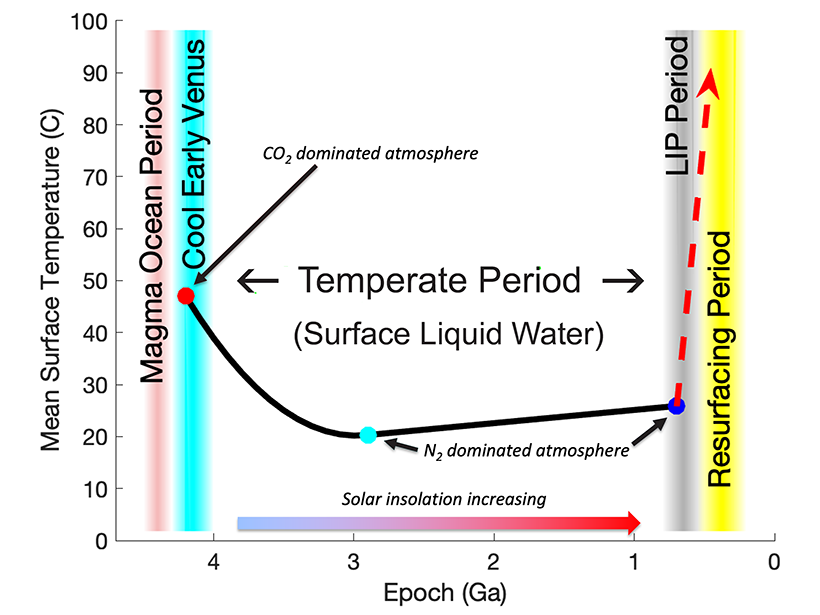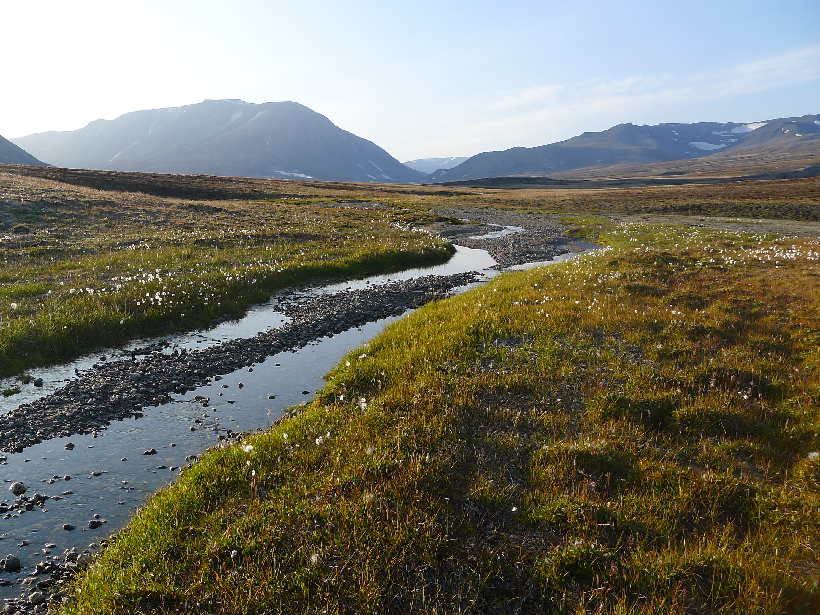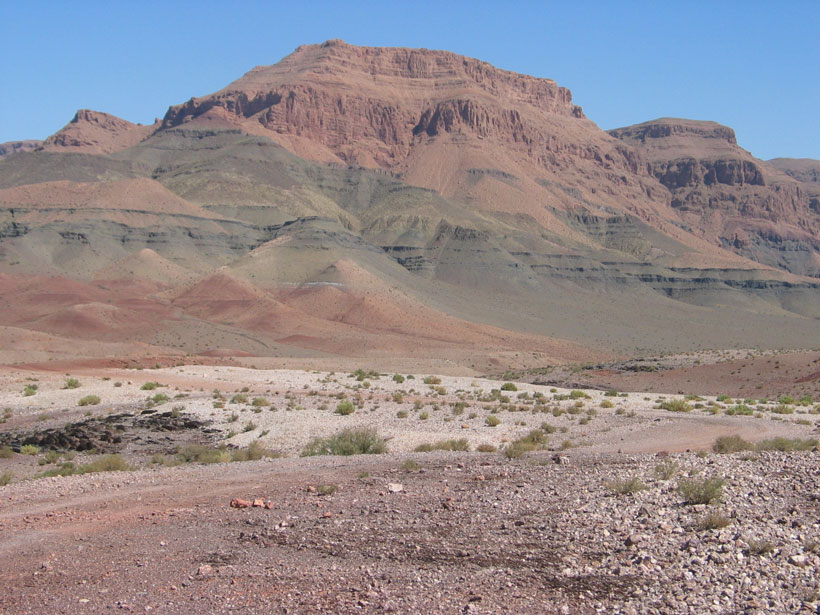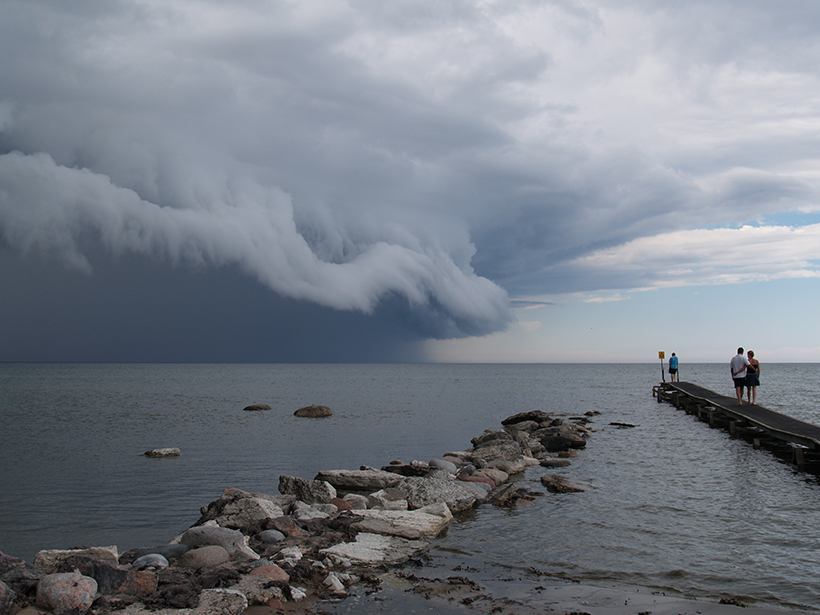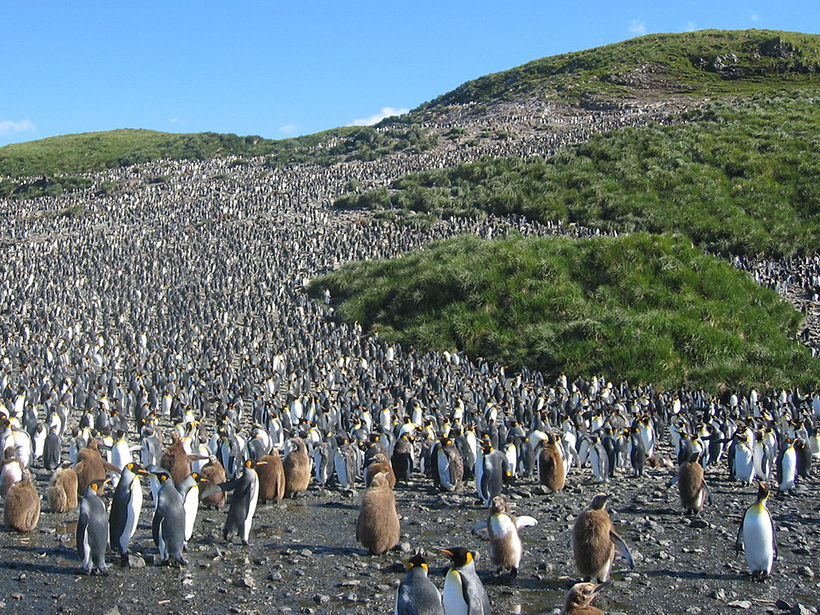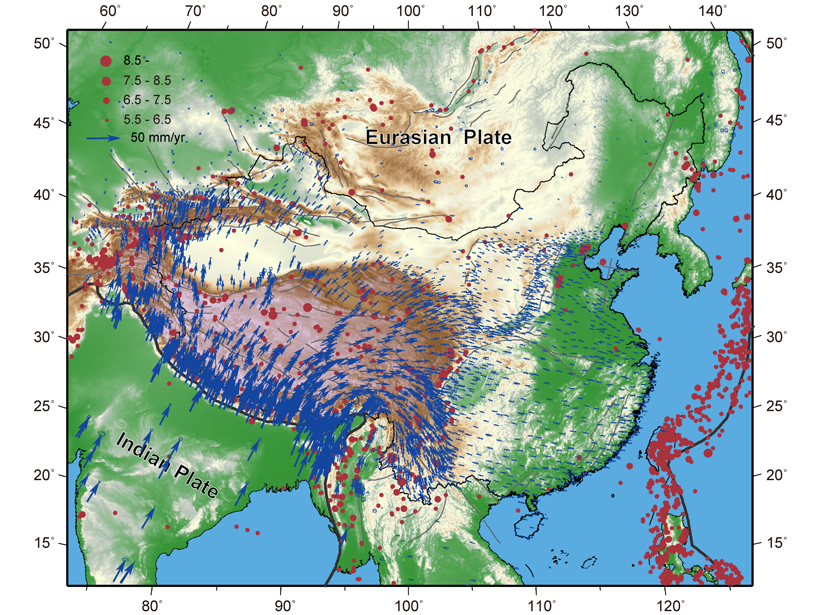New research examines how shifts in aboveground ecology influence belowground hydrology in the Arctic.
Kate Wheeling
Kate Wheeling is a freelance journalist based in Santa Barbara, Calif. She writes about the environment, climate change, energy, and our relationship with the natural world. She was previously a staff writer at Pacific Standard, covering both environmental and criminal justice. Her work has also appeared in Outside, The New Republic, Medium, and elsewhere. She has a master’s degree in science journalism and a bachelor’s in behavioral neuroscience.
Improving Atmospheric Forecasts with Machine Learning
An efficient, low-resolution machine learning model can usefully predict the global atmospheric state as much as 3 days out.
How Long Was Venus Habitable?
Climate simulations of Venus’s history could provide insights into the habitability of Earth and of exoplanets.
How Will Climate Change Affect Arctic Stream Slime?
Rising temperatures and thawing permafrost will change nutrient concentrations in Arctic waterways, which will influence the growth of biogeochemically important biofilms.
Tracking Trace Elements Across the Arctic Ocean
Researchers used data from a pan-Arctic survey of carbon and trace elements to better understand how climate change will affect primary production in one of the fastest warming regions of the world.
How Modern Emissions Compare to Ancient, Extinction-Level Events
Researchers find that a pulse of volcanic activity spanning several hundred years released as much carbon dioxide into the atmosphere as anthropogenic emissions projections for the 21st century.
Machine Learning Improves Weather and Climate Models
New research evaluates the performance of generative adversarial networks for stochastic parameterizations.
Finding Natural Solutions to Man-Made Problems in River Deltas
Decades of research on river deltas identify gaps in our knowledge of delta behavior and the tools required to fill them in.
How Climate Science Is Expanding the Scale of Ecological Research
Tools developed for climate science can help researchers forecast ecological dipoles: the contrasting effects of climate on populations separated by thousands of kilometers.
Space-Based Data Expand Understanding of Crustal Deformation
Researchers used the largest GPS data set yet to examine deformation of the crust across continental China and its implications for tectonic activity.



